Cabinet approves rules to limit customer numbers inside stores, after over 1,000 new cases confirmed on Sunday, pushing active infection figure to 10,232
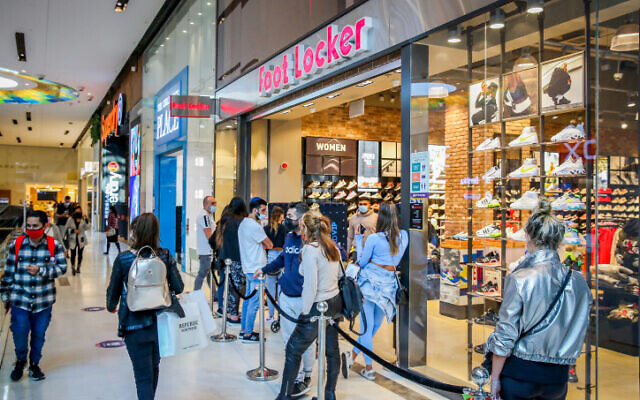
The government on Monday moved to further limit public access to shopping malls that have reopened in a widely criticized pilot program that saw the public flood stores over the weekend, raising concerns of an acceleration in the spread of COVID-19.
Meanwhile, the number of active coronavirus cases surpassed 10,000 for the first time in a month, the Health Ministry said, as it vowed to halt further moves to open the country back up following a national lockdown.
The ministerial coronavirus cabinet voted to reduce capacity at malls, a joint statement from the Health Ministry and Prime Minister’s Office said.
Instead of one person being allowed for every seven square meters, only one person per 15 square meters will now be permitted.
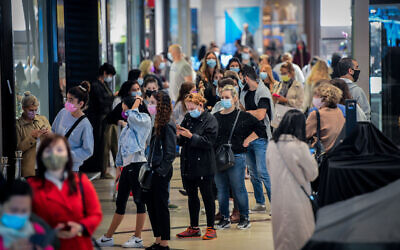
In a nod to store owners, who have lobbied for changes to allow more customers in as they look to get back on their feet, the cabinet said that there would be no blanket cap on how many people can be inside larger stores, as long as the ratio is maintained.
In stores smaller than 150 meters, the old ratio of one person for seven square meters will remain, with capacity capped at 10 customers and workers.
Malls have been closed — except for certain essential stores within them, such as pharmacies or food sellers — since mid-September, under the lockdown rules.
Street-front stores were allowed to reopen earlier this month, with a cap on the number of customers, which was raised from four to 10 on Wednesday.
Israel has been gradually lifting the rules put in place two months ago, including sending high school students back to class on Sunday and launching the shopping mall pilot. Tuesday is slated to see four museums open as part of their own pilot program.
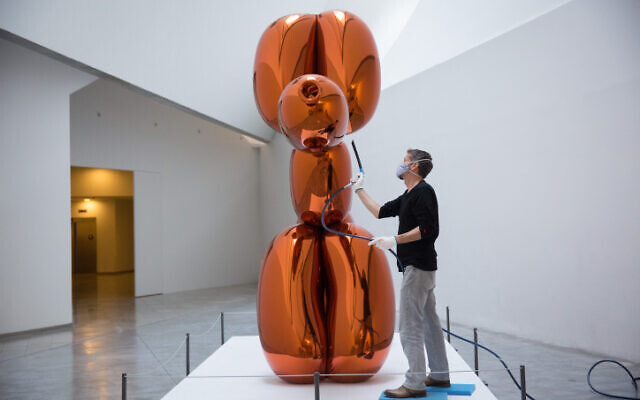
The moves come even as official have raised alarms over what they say is a dangerous rise in new infections that could lead to a fresh lockdown.
According to Health Ministry data released on Monday evening, 1,018 new coronavirus cases were confirmed the previous day, up from 557 on Saturday (daily case numbers are typically lower on weekends, as testing levels fall).
The last three days of last week similarly saw new daily infections top 1,000, after remaining below that threshold for over a month.
Of the 38,976 tests performed Sunday, 2.6 percent came back positive, the Health Ministry said. As recently as Wednesday, the positivity rate stood at 1.8%.
Non-final figures for Monday showed 927 new cases had been confirmed from midnight to 9:30 p.m., with 2.2% of the 42,298 tests showing a positive result.
The number of infections since the pandemic began stood at 336,664, of which 10,232 were active cases — the first time active cases have gone above 10,000 since the morning of November 1, when there were over 10,400 active cases. The number had dropped as low as 7,629 on November 15 before climbing again.
According to the ministry, there were 260 people in serious condition, with 89 on ventilators.
The death toll stood at 2,865, one more than a day earlier.
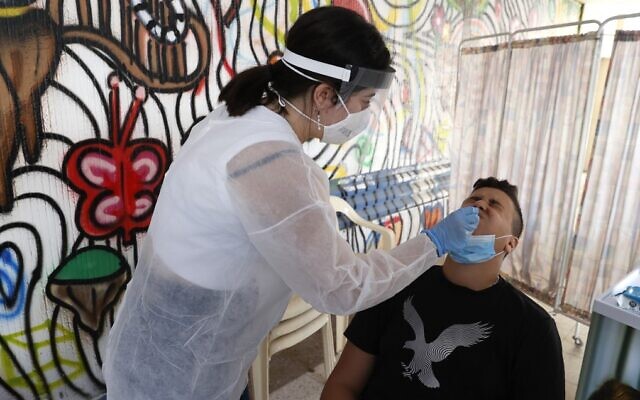
With numbers rising, the army is preparing to confine soldiers to military bases and prevent weekend vacations for the coming month. Over a thousand soldiers were diagnosed with coronavirus last week, and the Israel Defense Forces has told soldiers returning to their bases to bring supplies to last them for four weeks.
Health Minister Yuli Edelstein said earlier Monday that Israel would halt moves to ease the nationwide lockdown and could even put more restrictions into place if coronavirus infection rates continue to go “in a very wrong direction.”
“I felt a huge sense of shock when I saw the congestion in the malls,” Edelstein told the Ynet news site of the program, which entailed the reopening of 15 malls around the country on Friday as part of a plan to evaluate their compliance with social-distancing guidelines. The openings drew large crowds of shoppers who waited in line to enter stores.
“We will not be tempted by new openings in any way,” Edelstein said, tempering the hopes of small businesses still waiting for authorization to open. “Infection rates are going in a very wrong direction.”
Edelstein said the rising rates “do not mean we will be in lockdown in a week,” but cautioned that “the coronavirus cabinet will approve very clear indices for when to enter a third lockdown.”
Despite warning against further commercial reopenings, the health minister added that he did not support rolling back the reopening of high schools, which he said “should open as planned.”
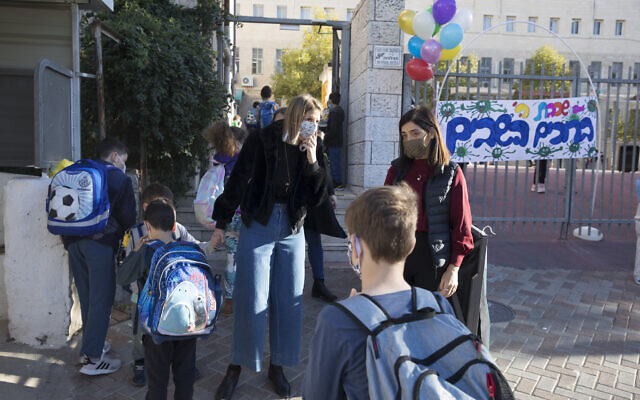
Around 400,000 Israeli high schoolers returned to the classroom on Sunday morning, after a break of nearly two months. Under the Health Ministry’s plan, students will have at least two days a week of in-person studying, with distance learning on the remaining days.
Restrictions dividing students into separate study pods mean that teachers will be permitted to come in contact with up to four groups of students, and the students themselves to move between only two groups. High school principals have warned that the regulations mean that the majority of studies for individual subjects will therefore have to continue remotely.
Edelstein’s comments echoed those of Prime Minister Benjamin Netanyahu, who told his cabinet on Sunday that Israel is better placed than other developed countries experiencing a second wave now, but “I’m telling you straight, we are in danger if we do not act immediately.”
“If there is a need, we will stop the easing and even tighten those [steps] that have already been made,” the prime minister said, urging citizens to stick to social distancing and mask-wearing rules.
As reported by The Times of Israel
